- Home
- Kelley Armstrong
A Stranger in Town Page 2
A Stranger in Town Read online
Page 2
My hands are all the way around the back when she shrieks, convulsing and slamming her fists into my chest. I grab her wrists, and she writhes and bares her teeth. The dogs both lunge forward, Sebastian grabbing Raoul to restrain him.
Dalton wordlessly restrains the woman’s hands as he motions for Felicity to grab her flailing feet. The woman bucks and writhes and spits, as if delirious, and I part her hair but see no sign of injury.
“Blood,” Sebastian says.
“What?” My head jerks up.
I realize he still has my gun, and he’s training it on the woman. Letting the sociopath hold the gun may not seem like the best strategy, but he’s actually the least likely to freak out and pull the trigger. When you struggle to empathize, seeing others in danger barely raises your heartbeat, and while we’ve been fighting with a madwoman, he’s been assessing her from his vantage point. He nods at her stomach, where her shirt has pulled up in her struggles, and I see a long strip of blood-soaked cloth around her midsection.
“Shit,” I mutter.
That explains why she lashed out—not from the pain of a head injury but because, in lifting her, I’d engaged her injured stomach muscles.
The woman suddenly goes still, panting, and Felicity eases back.
“Don’t—” I begin.
The woman kicks, foot flying up to smack Felicity under the jaw. It’s the woman who screams in pain, though, gnashing her teeth as she rasps something, her bloodshot eyes fixed on Felicity.
I glance Felicity’s way, and she nods abruptly. Her eyes simmer with annoyance, half at the woman, half at herself. It’s only then, as Felicity grabs the woman’s legs, that I see her feet are bare. Bare and bloodied.
I motion for Dalton to take my spot, and I creep down to Felicity. I take one of the woman’s ankles firmly, ignoring her kicks and howls. The soles are filthy, her feet and ankles crisscrossed with scratches.
Running through the forest. Barefoot.
I glance at the bloody bandage around her waist. It’s crimson now, fresh blood seeping through. I move up the woman’s side.
The bandage is only roughly tucked in, a haphazard job. As the others hold the woman still, I unravel the dressing, blocking out her screams and curses. I don’t even have it halfway open before the smell hits me.
“What is that?” Sebastian says, hand flying to his nose.
Rotting flesh.
Infection.
I wheel to Sebastian. “Get April. Now.”
* * *
Sebastian is gone, Baptiste accompanying him. It’s five kilometers to Rockton and the paths are too narrow for the horses to gallop. I remember running that far to school rather than wait for the bus. Twenty minutes easily. That’s in the city. This is forest, where even paths aren’t flat or free of trip hazards.
It’ll be over an hour before April can return on an ATV. My dirt bike would be faster, and I have argued—strenuously—that my sister needs to learn to ride it, as a matter of practicality. She refuses, saying that 95 percent of her work is in town, and 4 percent in remote spots that my bike couldn’t reach anyway. She accused me of playing the “emergency services” card as an excuse to “force” her to do something I consider fun.
Yes, my sister and I have very different definitions of the word “fun.” Honestly, I’m not sure it’s in her vocabulary. I could blame her workaholic ways, but part of that is her nature. She’s brilliant and driven and almost certainly on the autism scale. Saying she doesn’t know the meaning of fun is unfair. Also untrue. I bought her a new label maker on this morning’s supply trip—replacing the one she wore out—and she practically vibrated with excitement.
As we wait for April, we deal with the mystery woman and her injuries. There’s no doubt she’s delirious, from the fever or the sepsis or both. I can only guess what she imagines us to be in her delusions. Predators, perhaps, who attacked in the forest. Or human monsters, mad scientists pinning her down to conduct horrible experiments.
I should have told Sebastian to be sure April packed a sedative. The best thing we could do for this woman would be to knock her out. It takes all our power to restrain her without injuring her more, and I’m not even sure we accomplish that.
I always carry a first-aid kit as part of my pack. Dalton also has one in his saddlebags, and he’s delivered them both now, as I work on the woman.
Sidra has put Abby in her basket, and she’s with Felicity bringing snow from the shady edge of the lake. I tried to get water into the woman, but most of it ended up seeping into the ground. I save the rest for cleaning her stomach wound, but even if I could harden my heart to her shrieks of agony, I wouldn’t know where to begin.
The abdomen is one of the worst spots for infection susceptibility and infection leading to sepsis. The wound has been bound, but it’s a makeshift bandage, presumably to stop the bleeding.
What caused the wound? I have no idea. I can’t even unwrap the last layer of bandage. It’s grafted to infected flesh, and the slightest tug has her howling in pain.
I need to ignore the wound and concentrate on lowering her temperature while keeping her warm, knowing the sepsis is far enough advanced that her body temperature could plunge at any moment.
Eventually, she calms down, which may only be exhaustion. She continues to thrash, her words so mumbled that I doubt I could understand them even if I did speak the language.
As she lies on a bed of jackets and blankets, she stares glassy-eyed at the sky, her lips moving. Storm and I sit beside her as I absently pet the dog and look at the woman.
What happened to you?
Even if she could tell me, it’s almost inconsequential at this moment. Yes, it would help to know how she sustained her injuries—and I have no doubt my sister will chastise me for not getting that information—but the biggest threat is her infection, and her story doesn’t affect that. I just want to know it. I desperately want to know it.
I glance at her clothing. Dalton has built another fire, rather than risk moving her closer to the first, and in the light of it I see colors in the woman’s outfit. An emblem on the breast. A bit of black in the pants, as part of the design. All that, though, is hidden under a layer of dust and dirt.
It’s definitely expensive. My parents were successful medical professionals, and in their world, people will drop a grand on hiking gear to join a cushy two-day guided hike along the Appalachian Trail. While some of that gear is trendy and overpriced, some is worth the money. In Rockton, I have accumulated my first rack of expensive designer footwear: hiking shoes and boots for every occasion. The newfound indulgence of a trust-fund baby who had never actually dipped into her trust fund.
I pride myself on being a sensible and informed shopper. I ignore labels and designs and do my research. I can devote an hour to weighing options as we shop high-end outfitters in Vancouver. Which gets me exactly the same results as just handing two articles of clothing to Dalton and having him declare one “a piece of shit” and the other “good enough, but that one over there is better.” There is no substitute for experience. I’m gaining that, though, at least enough to look at this woman’s clothing and declare it “a piece of shit.”
Germanic speaker wearing overpriced outdoor gear.
My memory shuffles through images and stops at one from today’s supply run. We’d been walking along the wooden sidewalks of Dawson City. It’s so quiet at this time of year that it reminds me of a Wild West town at high noon, and I half expect to see tumbleweeds rolling down the dirt roads. When we did hear voices, they rang as loud as church bells. It’d been a quartet speaking in a Germanic language, all dressed in expensive outdoor wear as they prepared for a trip to Tombstone Park.
“Guess we didn’t beat tourist season after all,” I’d said to Dalton.
There can be a cultural component to tourism. Go to Prince Edward Island, and you’ll find crowds of Japanese tourists on a pilgrimage to the birthplace of Anne of Green Gables. Come to the Yukon, and you find crowds of Ge
rmans looking to explore our fabled wilderness. Some are expert explorers … and some just want an adventure. From the look of this woman’s outfit, she falls into the latter category.
An adventure is what she wanted. What she got, I fear, is a true taste of what it means to be dropped off in the wilderness a hundred miles from the nearest community.
This morning, Dalton and I had sat on a patio, enjoying a coffee and a pastry in what felt like summer sunshine. Another group of tourists had walked by, American weekend warriors in full gear, talking about their plans for backwoods camping up in Tombstone. Dalton had tracked their progress down the street and muttered, “Fucking climate change.”
A local sitting nearby had chuckled and said, “And here we thought we had another two weeks of peace and quiet.”
What Dalton meant, though, was that climate change is a trickster, luring outsiders into the wilderness before Mother Nature is ready to receive them. According to today’s weather reports, by midafternoon, Dawson City would be the warmest place in Canada, which is truly insane. Yet when we left our beds predawn to hike the Ninth Avenue Trail, we’d layered up with fleece. Those hikers were about to head into the wilderness, expecting gorgeous weather, when the truth was that they could be buried under a foot of snow tomorrow. At the very least, they’d encounter frozen lakes and muddy bogs.
As we wait for my sister, I cannot help building a potential story for this woman. She’s in good shape. Maybe thirty. Probably has some experience with the outdoors. Comes to the Yukon for her Canadian adventure. Dropped off in the wilderness. Then something goes wrong. The abdominal injury is almost certainly a freak accident. She slipped on mud or ice coming down the mountainside and impaled herself on a branch.
The next step should be to turn on your satellite phone and call for help. Had she underestimated the severity of her injury? Realized how much an emergency pickup would cost and decided she’d “tough it out”? I’d love to say that no one who bought this brand of outdoorsman wear would risk their life to save a rescue charge, but people are not always rational.
There’s another reason her sat phone might have failed, though I cringe to consider it. Our own radios barely work, and the council—who run our town from the safety of civilization—blame all kinds of environmental factors, but we think they employ technology that interferes with the signals, ensuring residents are truly cut off from the outside world.
Whatever the reason, this woman failed to get help, and what started as a coolheaded search for civilization would have turned into a panicked run, as fever set in. She keeps running until she loses her shoes and is too far gone to care. Finally hears voices, laughter even, and races toward the sound, only to collapse the moment she sees salvation.
It’s a reasonable story, and I’m sure it bears at least a superficial resemblance to the truth. There’s only one element missing. One element that tells me this is more than a woman whose adventure went horribly awry.
She is alone.
No reputable bush plane operator would drop off a solitary tourist in the forest. That means she came with at least one other person.
So how did she wind up here, injured and alone?
I’m not sure I want the answer to that.
THREE
Seventy minutes after sending the boys off, we hear the roar of the ATV. It’s dusk now, sliding into darkness, and the lights of the vehicle appear moments after I hear the engine. I run to meet it with Storm at my heels. The wide path ends where we left the horses, and they need to finish the journey on foot. I’m there both to direct April and to bring her up to speed.
The first person I see isn’t April. Not unless my sister has turned into a guy with his sleeves pushed up to show off impressive muscles and a US Army tattoo. That would be Will Anders, our deputy, driving the ATV.
Anders leaps out as he yanks off his helmet. The woman in the passenger seat is taking her sweet time removing hers and then placing it in the back seat before climbing from the vehicle.
When Dalton first met April, he’d known instantly that she is my sister. The resemblance, obviously. Except it wasn’t obvious to me. I overlook the parts we both inherited from our Filipino-Chinese mother—high cheekbones, heart-shaped face, dark straight hair. In April, I only ever see the things we don’t share, the ones she inherited from our Scottish side—her pale skin, her blue eyes, her hourglass figure, all of which mean it’s rare for anyone to ask where she came from, whether she speaks English, does she know any good local sushi restaurants …
April can pass for white, and I cannot, and this has always felt like a division that superseded all similarities. The world told us that this meant we did not look like sisters, and that made the gulf between us feel all the more impassable.
“Hey.” Anders throws one arm around my shoulders. “You doing okay?”
“Better than our patient.”
“Yeah, I know.” He hefts the medical bag in his hand. “I’ll run ahead and get started.”
“Did April pack a sedative? She’s going to need it.”
“Sebastian warned us. We’ve got extra. Everything’s good.” He claps a hand against my back and takes off to begin triage.
Anders was premed when he enlisted in the army. He’d gotten some medic training before his superiors switched him to MP duty. He’d have made a fine medic, but he made an even better cop. When a fight breaks out in Rockton, we send Anders first. Most times, he just needs to turn up the charm, and people forget what they were arguing about. If fists do fly, he’s got the muscle to subdue any resident and the equanimity not to throw any unnecessary punches doing it. He keeps up his medical training, though. In Rockton, we can always use more people who know how to set a broken bone or stitch a gash.
He’s halfway down the path before my sister makes her way to me.
“Come on, April,” I say. “Can we pick up the pace? This isn’t a garden party.”
“No, it’s a bonfire party. Or it was, until this woman intruded.”
I stifle a snort. “She’s in septic shock, April. I think she can be forgiven for party-crashing.”
“Septic shock is your diagnosis. You are a not a physician, Casey, and I will reserve judgment until I see the patient.”
“At this rate, we won’t need a physician. We’ll need a coroner. Come on.”
“Running pell-mell through the forest is a sure way to end up like this woman. Sebastian says it looks as if she fell and injured herself.”
“Mmm. I could speculate, but if I do, you’ll remind me that I’m not a doctor.”
She shoots a hard look my way as we continue toward the lake. As I tell her my theory, I leave out the “fell on a branch” part. That’s where I’m most likely to be mistaken, and part of me will always be the little girl who doesn’t want to look foolish in front of her big sister.
It doesn’t help that April’s autism means she has no problem making me feel foolish. I know that’s not her fault, but a diagnosis thirty years late doesn’t undo the damage. I grew up with parents who always made me feel not quite up to snuff, intellectually, and a sister who didn’t realize that every time she “made allowances for my diminished mental capacity,” I felt stupid and useless. It was hard to make anyone understand that when my IQ put me well above average. I just wasn’t a genius like the rest of my family.
“Does that make sense?” she says when I finish my theory.
I tense. “Does … what make sense?”
“That she fell and injured her stomach.”
There are a lot of things I hate my parents for, but this tops the list—that they knew April was on the spectrum and ignored it because, to them, it meant their child was broken. Yes, if I’m being charitable, I’ll admit that maybe they thought this was best for April. Treat her as if she were neurotypical and refuse to allow her to be labeled or otherwise held back. In the end, though, it led to a woman who spent her life feeling different and blaming it on herself.
One of our residents, K
enny, has an autistic brother, and when he talks to April, I swear it’s like seeing someone speak a language I never learned, a language I desperately want to master. When April questions whether my theory makes sense, it sounds combative, and my hackles rise, even as a voice inside me says that’s not how she means it.
I take a deep breath and explain that, with the rough terrain and the endless slopes—foothills and mountains and valleys—one of the biggest dangers isn’t falling off an edge, but losing your footing and sliding.
“One of the residents died from that in the nineties,” I say. “He slipped on a muddy slope and impaled himself on a branch. Before that, a woman had to be rushed into emergency surgery for a punctured lung after falling on her own walking stick.”
“I am well aware of the past cases, Casey. I’m the town doctor. I have the files.”
Deep breath. “Yes, but they’re very old cases, and I wouldn’t expect you to read them, much less remember them.”
“Others perhaps. Not us,” she says with a sniff, and I do not fail to miss that “us.” One inclusive word that has the little girl inside me dancing with glee.
We reach the lake and start across it.
“My point,” April continues, “is that I believe there are far more rational explanations for the abdominal injury.”
That inner child sags. “Uh-huh.”
“Have you considered the fact she may have been attacked by her companion?”
“Sure, that’s a possibility but—”
“Shot perhaps? Or knifed?”
“Knifed?” That is not a word my sister uses. “Okay, those are possibilities, but I prefer to start with the ones that don’t involve crazed companions—”
“He—or she—doesn’t have to be crazed. The isolation drove them to lash out, perhaps over the last piece of chocolate.” A glance my way. “I’m sure you could appreciate that.”
I laugh more than the joke warrants. Attempting humor is a new thing for my sister, and we may overencourage her, rather like showering Storm with praise when she picks up a difficult scent trail. April would love that comparison.

 The Calling
The Calling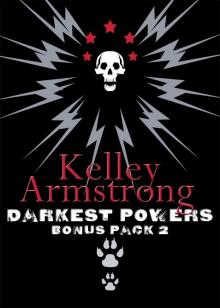 Darkest Powers Bonus Pack
Darkest Powers Bonus Pack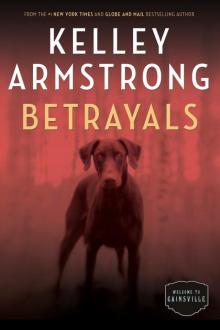 Betrayals
Betrayals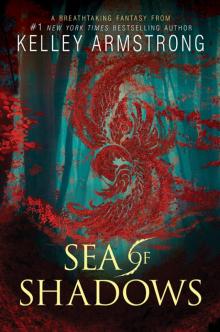 Sea of Shadows
Sea of Shadows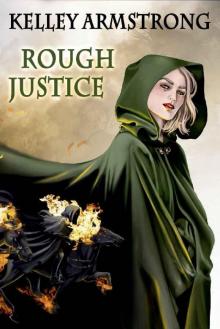 Rough Justice
Rough Justice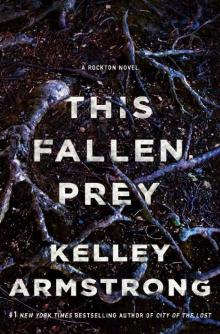 This Fallen Prey
This Fallen Prey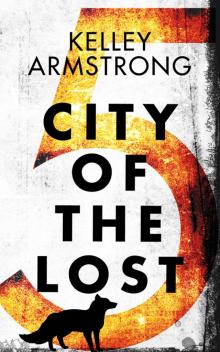 City of the Lost: Part Five
City of the Lost: Part Five Perfect Victim
Perfect Victim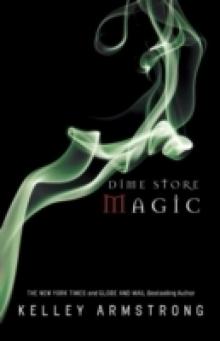 Dime Store Magic
Dime Store Magic Personal Demon
Personal Demon Haunted
Haunted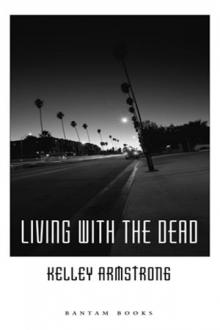 Living With the Dead
Living With the Dead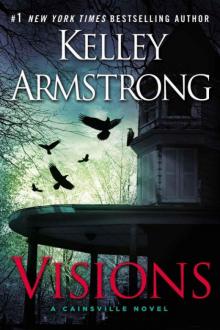 Visions
Visions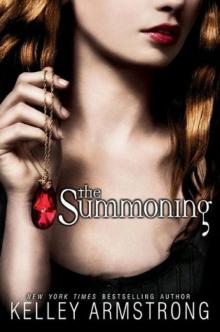 The Summoning
The Summoning Broken
Broken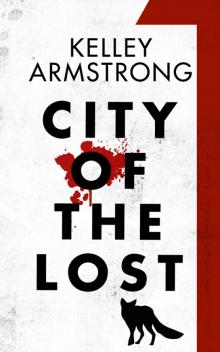 City of the Lost: Part One
City of the Lost: Part One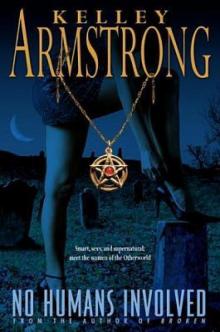 No Humans Involved
No Humans Involved The Awakening
The Awakening The Reckoning
The Reckoning The Gathering
The Gathering Bitten
Bitten Thirteen
Thirteen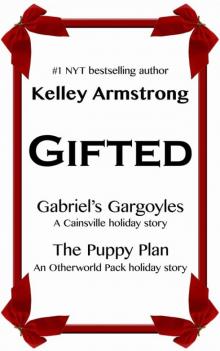 Gifted
Gifted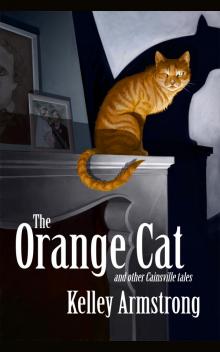 The Orange Cat and Other Cainsville Tales
The Orange Cat and Other Cainsville Tales Darkest Powers Bonus Pack 2
Darkest Powers Bonus Pack 2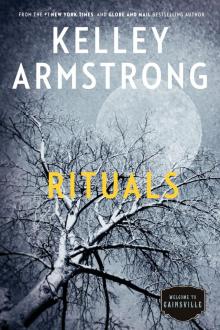 Rituals
Rituals Waking the Witch
Waking the Witch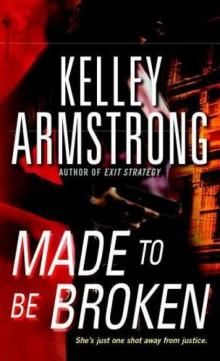 Made to Be Broken
Made to Be Broken Lost Souls
Lost Souls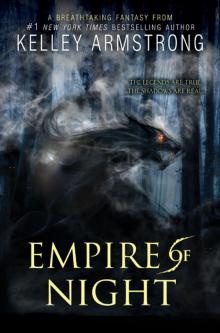 Empire of Night
Empire of Night Wild Justice
Wild Justice Double Play
Double Play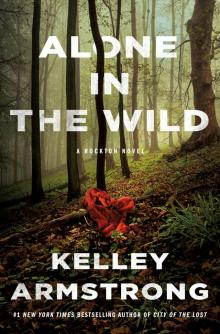 Alone in the Wild
Alone in the Wild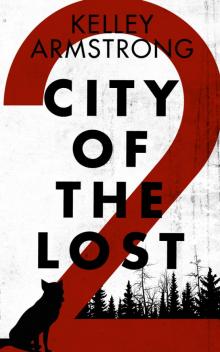 City of the Lost: Part Two
City of the Lost: Part Two A Stranger in Town
A Stranger in Town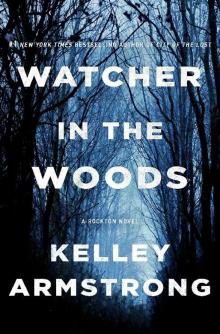 Watcher in the Woods: A Rockton Novel
Watcher in the Woods: A Rockton Novel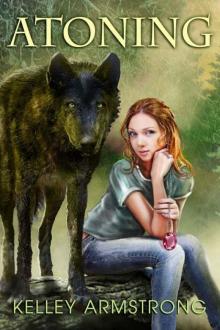 Atoning
Atoning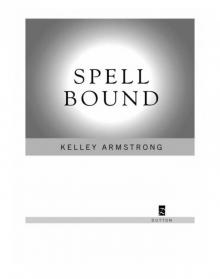 Spellbound
Spellbound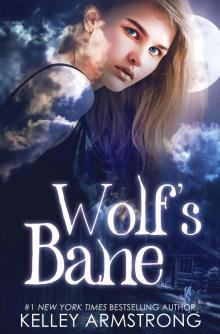 Wolf's Bane
Wolf's Bane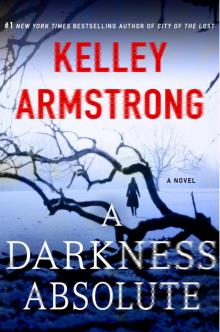 A Darkness Absolute
A Darkness Absolute Ballgowns & Butterflies: A Stitch in Time Holiday Novella
Ballgowns & Butterflies: A Stitch in Time Holiday Novella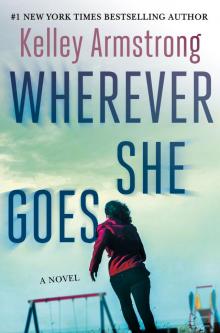 Wherever She Goes
Wherever She Goes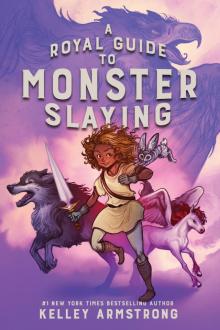 A Royal Guide to Monster Slaying
A Royal Guide to Monster Slaying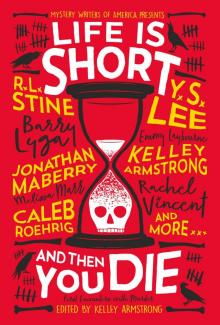 Life Is Short and Then You Die
Life Is Short and Then You Die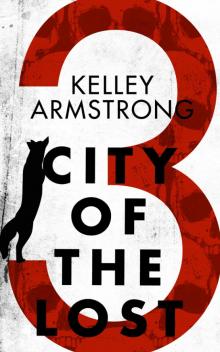 City of the Lost: Part Three
City of the Lost: Part Three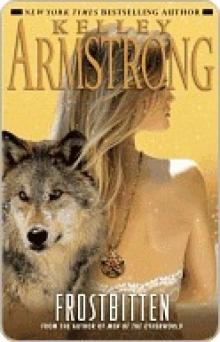 Frostbitten
Frostbitten A Stitch in Time
A Stitch in Time Industrial Magic
Industrial Magic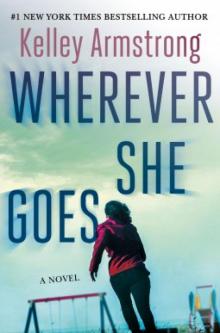 Wherever She Goes (ARC)
Wherever She Goes (ARC)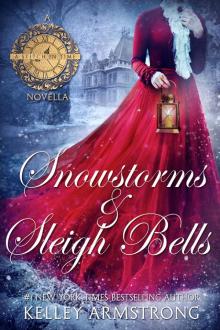 Snowstorms & Sleigh Bells: A Stitch in Time holiday novella
Snowstorms & Sleigh Bells: A Stitch in Time holiday novella Exit Strategy
Exit Strategy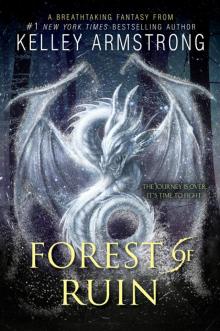 Forest of Ruin
Forest of Ruin Cursed Luck, Book 1
Cursed Luck, Book 1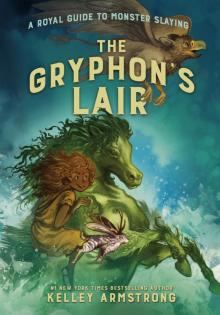 The Gryphon's Lair
The Gryphon's Lair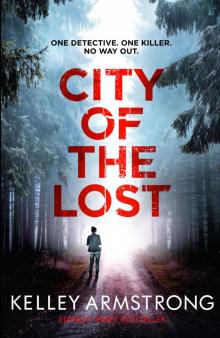 City of the Lost
City of the Lost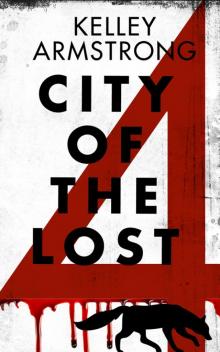 City of the Lost: Part Four
City of the Lost: Part Four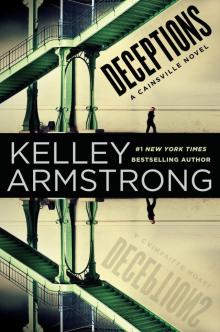 Deceptions
Deceptions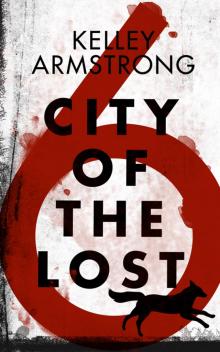 City of the Lost: Part Six
City of the Lost: Part Six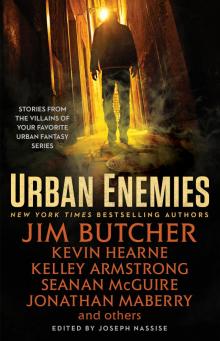 Urban Enemies
Urban Enemies Stolen
Stolen Every Step She Takes
Every Step She Takes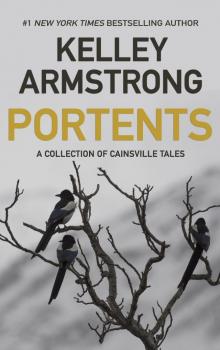 Portents
Portents Wolf's Curse
Wolf's Curse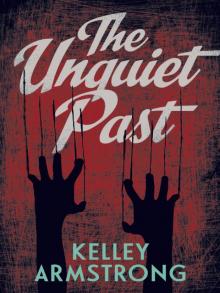 The Unquiet past
The Unquiet past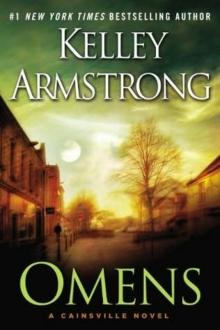 Omens ct-1
Omens ct-1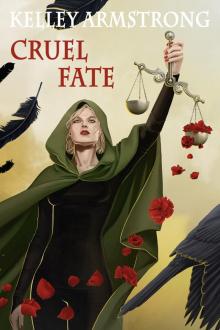 Cruel Fate
Cruel Fate The Calling dr-2
The Calling dr-2 The Awakening dp-2
The Awakening dp-2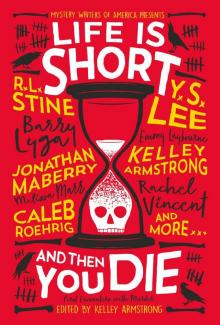 Life Is Short and Then You Die_First Encounters With Murder From Mystery Writers of America
Life Is Short and Then You Die_First Encounters With Murder From Mystery Writers of America Goddess of Summer Love: a Cursed Luck novella
Goddess of Summer Love: a Cursed Luck novella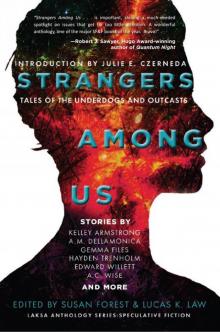 Strangers Among Us
Strangers Among Us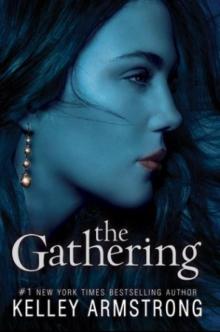 The Gathering dr-1
The Gathering dr-1 The Rising dr-3
The Rising dr-3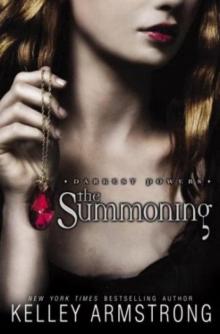 The Summoning dp-1
The Summoning dp-1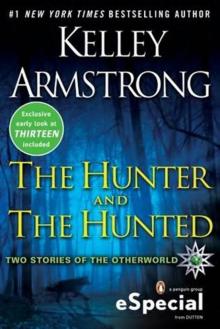 The Hunter And The Hunted
The Hunter And The Hunted Waking the Witch woto-11
Waking the Witch woto-11